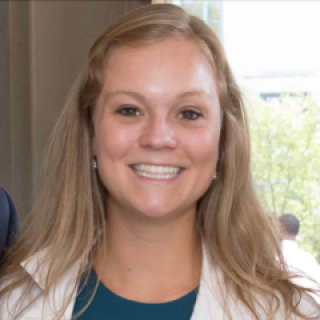
Stanley Adoro, Ph.D.
- Center for Cancer Research
- National Cancer Institute
- Building 10, Room 4A01
- Bethesda, MD 20892
- 240-858-3217
- stanley.adoro@nih.gov
RESEARCH SUMMARY
Dr. Adoro is an immunologist with an interest in understanding the process of blood cell development. His laboratory seeks to understand how the mechanisms that sense and maintain cellular proteome homeostasis (“proteostasis”) control hematopoietic cell development and function. These studies are revealing that the dysfunction of key proteostasis regulators impairs stem and blood cell integrity and contributes to the emergence of diseases including blood cancers, chronic infection and organismal growth defects.
Areas of Expertise

Stanley Adoro, Ph.D.
Research
There are numerous factors that regulate the differentiation of bone marrow hematopoietic stem and progenitor cells, which give rise to a variety of immune cells. Defects in such factors underlie many debilitating growth defects and fatal human diseases, including blood cancers, chronic infections and autoimmune syndromes. Given that proteins are the major regulators of cellular function, we have taken a proteome-centric approach to understand blood cell development and homeostasis. Our overarching goal is to understand how proteome homeostasis (“proteostasis”) and proteostasis regulators are integrated into the transcriptional and epigenetic programs that enable immune cell differentiation and function. We anticipate that these studies will yield novel understanding of immune cell biology and uncover proteostasis vulnerabilities that can be targeted to treat blood cell diseases.
Control of normal and malignant hematopoiesis by proteostasis regulators
Hematopoietic stem and progenitor cells (HSPC) are highly sensitive to proteome perturbations. Yet very little is known about how HSPC fate is influenced by key regulators of proteostasis, which include organelle unfolded/misfolded protein response pathways, the ubiquitin proteasome system and the autophagy machinery. Using animal models, studies in my lab focus on determining how gain and loss of function of key proteostasis regulators and human mutations that compromise cellular proteostasis influence the fate and malignancy in HSPCs. Other key aspects of this research are to understand signals that control proteostasis regulators in normal and malignant HSPCs and to develop reagents that therapeutically modulate proteostasis pathways in blood cell diseases.
Posttranslational regulation of immune cell development and function
How immune cells precisely integrate signals from antigen or cytokine receptors into their fate and function remains a long-standing question in immunology. Guided by our previous findings of its ability to tune client protein abundance posttranslationally in response to the quantity of antigen receptor signal in thymocytes, we are investigating how the accessory ESCRT protein CHMP5 is utilized by adaptive and innate immune cells to integrate receptor signals that shape systemic and tissue immunity. We also explore how CHMP5-nucleated pathways might be coopted to enable malignant blood cell homeostasis.
Publications
- Bibliography Link
- View Dr. Adoro's PubMed Summary
- View Dr. Adoro's ORCID Profile
The ESCRT protein CHMP5 promotes T cell leukemia by enabling BRD4-p300-dependent transcription
Notch-induced endoplasmic reticulum- associated degradation governs mouse thymocyte β-selection
Protein quality control through endoplasmic reticulum-associated degradation maintains haematopoietic stem cell identity and niche interactions
Post-translational control of T cell development by the ESCRT protein CHMP5
Biography

Stanley Adoro, Ph.D.
Dr. Adoro received his B.Sc. and M.Sc. at the University of Ibadan in Nigeria. Upon completing his Ph.D. in Immunology at the University of Pennsylvania in Philadelphia, he went on to do a postdoctoral fellowship at the Harvard School of Public Health in Boston and Weill Cornell Medicine in New York.
After his postdoctoral training, Dr. Adoro became a member of the faculty at the Dana Farber Cancer Institute, affiliated with Harvard Medical School, Boston. In 2017, he was recruited as a tenure-track assistant professor in the Department of Pathology at Case Western Reserve University School of Medicine in Cleveland. He is the recipient of an NCI Career Development Award, an American Cancer Society Research Scholar Award, and the Michael E. Lamm Award for Graduate Student Teaching from the Department of Pathology, Case Western Reserve University School of Medicine. Dr. Adoro joined the NCI in August 2022 as an Earl Stadtman Tenure-Track Investigator.
Job Vacancies
We have no open positions in our group at this time, please check back later.
To see all available positions at CCR, take a look at our Careers page. You can also subscribe to receive CCR's latest job and training opportunities in your inbox.
News
Learn more about CCR research advances, new discoveries and more
on our news section.


